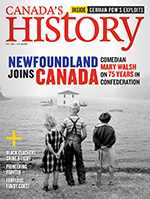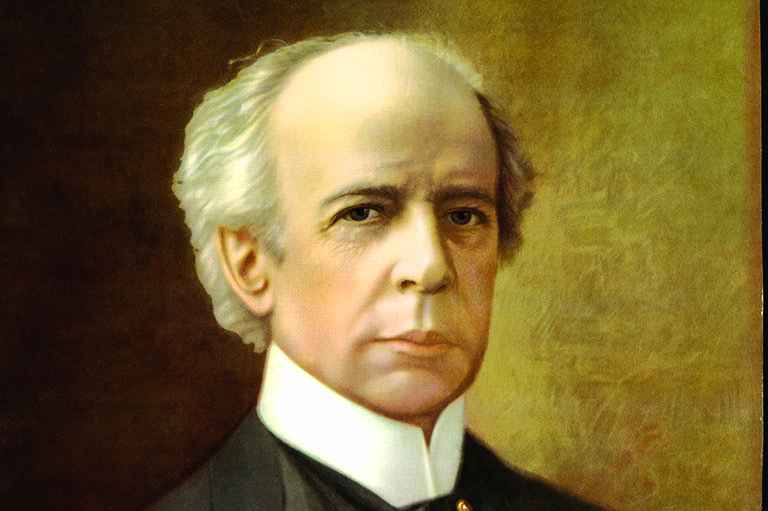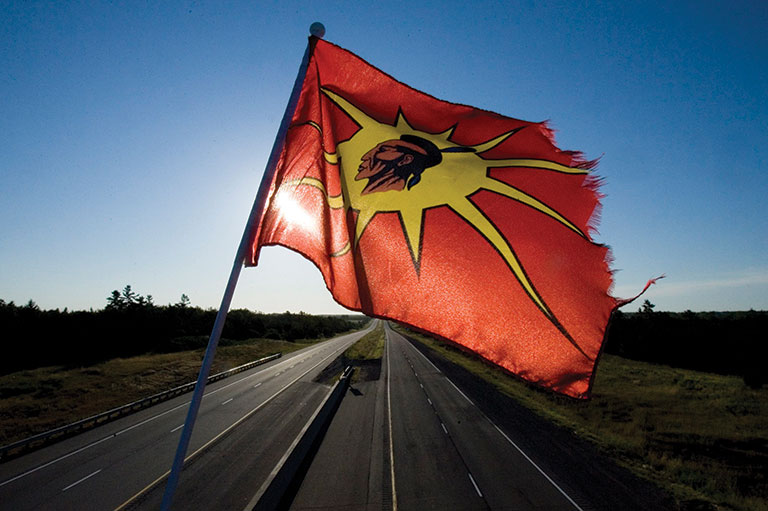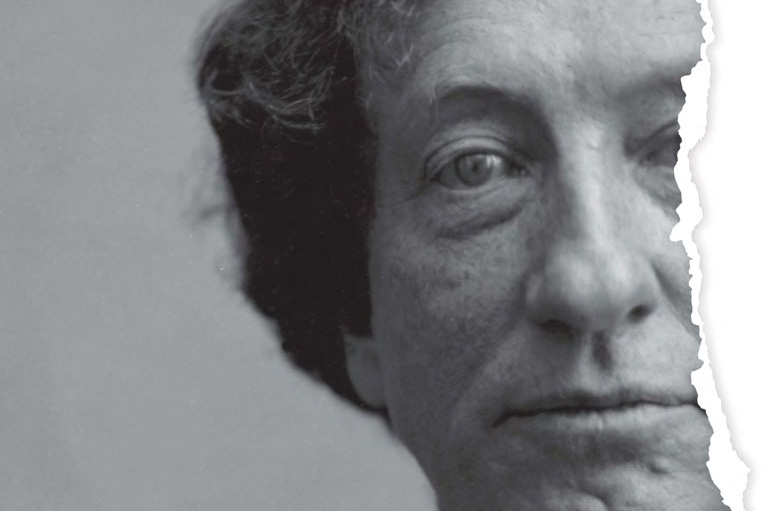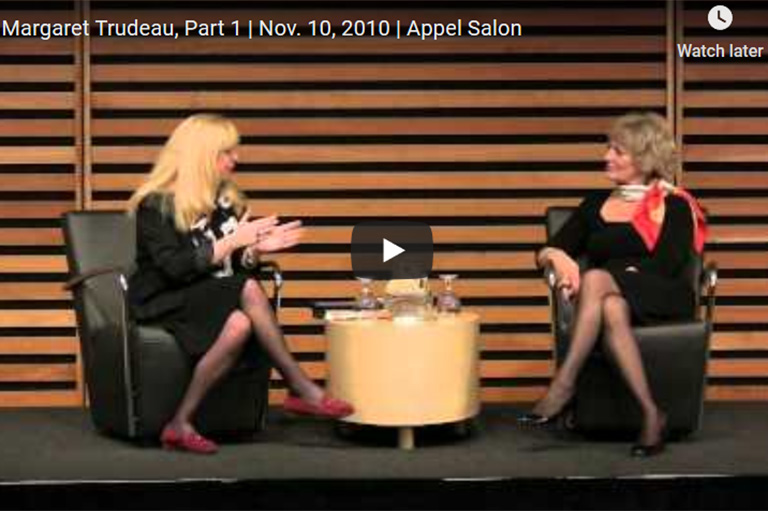Discover a wealth of interesting, entertaining and informative stories in each issue, delivered to you six times per year.
History Spotlight: Sir Wilfrid Laurier
Who was the man who became Canada’s seventh prime minister?
Roy MacSkimming, author of the recently published Laurier in Love, shared his thoughts about the man with Assistant Editor Bev Tallon in this podcast.
Wilfrid Laurier was born in 1841 at St. Lin, Quebec of humble beginnings. The son of a farmer, he was sent to the nearby town of new Glasgow at a young age to learn English. After seven years at a Roman Catholic college, Laurier studied law at McGill University.
He delivered the valedictory address for his class in 1864 and made his first of many speeches appealing for sympathy and union between the French and English. He embarked on a law career in Montreal, however ill health, which he believed to be tuberculosis but turned out to be chronic bronchitis, caused him to move in 1866.
He lived first in L’Avenir, then Victoriaville, Quebec, where in 1867 he opened a law firm — the start of a thirty year practice. As a supporter of the Liberal party or “parti rouge,” Laurier took the job of editor of Le Défricheur, opposing the terms of Confederation and defending Liberal policies until the paper’s demise that year.
In 1868 he married Zoe Lafontaine. In Arthabaska Regional County he was elected alderman, mayor, and in 1881, county warden. The couple built a large house in the municipality’s seat, Victoriaville, in 1878. There they became part of the local society until Laurier’s political career necessitated moving to Ottawa in 1897. The Laurier’s former residence was also the home of Prime Minister Mackenzie and is now being used as a museum.
In 1871 Laurier won a seat as a liberal member, as was the Minister of Inland Revenue for one year. He resigned in 1874 and was elected to the House of Commons the same year. Although he was re-elected in Québec-Est, he was less interested in political debate due to his party’s electoral defeats in 1878 and 1882.
However, he energetically defended Louis Riel’s cause and the unification of the French and English in Canada. When Liberal leader Edward Blake resigned in 1887, Laurier succeeded him.
In 1896, after eighteen years with a Conservative government the Liberals won, and Laurier became the first francophone prime minister of Canada.
After defeating Charles Tupper in 1896 he compromised on the Manitoba Schools Question — the issue of education rights of the Catholic minority in Manitoba — with the Laurier-Greenway agreement, which said religious instruction could be obtained during the last half-hour of the school day in a language other than English.
He also tackled the creation of the Yukon Territory in 1898, Canada’s participation in the South African War (1899 – 1902), and the Alaska Boundary Dispute in 1903.
During his second term in 1903, Laurier revealed a decision to construct a second transcontinental railway, with the Grand Trunk Pacific constructing a line from Winnipeg westward and the government building the National Transcontinental section from Moncton and Quebec to Winnipeg.
Laurier saw through the creation of two new provinces in 1905 — Saskatchewan and Alberta — where he once again gave in to the popular belief that the Catholic minority should not have the right to separate schools.
In 1910–11 he passed two more unpopular bills: the Naval Service Act, establishing a Canadian navy, and a reciprocity bill, providing free trade and reduced duty on several natural resources to the United States. This sealed his political defeat as prime minister. He continued to lead the Liberal party but division developed due to Laurier’s support of voluntary enlistment rather than conscription in WWI.
He died in February 1919, at the age of seventy-eight, after serving for forty-five years in the House of Commons. Fifty thousand people lined the streets of Ottawa for his funeral procession, which was lead by dignitaries and political officials. It was to become one of the first public events in Canada to be preserved on film.
More online
- CBC Digital Archives — The death of Sir Wilfrid Laurier, broadcast April 17, 1966.
- Take a Virtual Tour of the Laurier House
- Online Book: For the true Laurier aficionado at Archive.org online books: Life and letters of Sir Wilfrid Laurier by Oscar D. Skelton, 1921, Volume 1, 485 pp.
Timeline
1841
Wilfrid Laurier was born on November 20.
1864
Laurier graduates with a law degree from McGill University on October 3.
1871
Laurier begins his political career as a member of the Legislative Assembly of Quebec.
1874
Laurier is elected to the House of Commons and appointed Minister of Inland Revenue in 1877.
1896
Laurier is elected Prime Minister of Canada, a position he will hold for fifteen years, the longest undefeated mandate in Canadian history. Also: Laurier and Manitoba Premier Thomas Greenway create compromise legislation on The Manitoba Schools Question — Catholics in Manitoba are permitted to have a Catholic education in public schools on a school-to-school basis and be taught in French (or other language) if there is a minimum of 10 students who speak that language. Re-establishment of a Catholic school board but no government funding.
1897
Prime Minister Laurier represents Canada at Queen Victoria’s diamond jubilee and receives a knighthood.
1899
Second Boer War — Laurier opposes sending the Militia to assist a British colonial war, proposing a volunteer component only.
1900
Laurier creates the Railway Bill, which allows for the development of two more transcontinental railways.
1905
Laurier oversees the creation of two new provinces — Saskatchewan and Alberta.
1910
Laurier proposes the Naval Service Act. The bill is passed and Laurier creates the Royal Canadian Navy.
1919
Sir Wilfrid Laurier has a stroke and dies on February 17 at the age of seventy-seven.
We hope you will help us continue to share fascinating stories about Canada’s past.
We highlight our nation’s diverse past by telling stories that illuminate the people, places, and events that unite us as Canadians, and by making those stories accessible to everyone through our free online content.
Canada’s History is a registered charity that depends on contributions from readers like you to share inspiring and informative stories with students and citizens of all ages — award-winning stories written by Canada’s top historians, authors, journalists, and history enthusiasts.
Any amount helps, or better yet, start a monthly donation today. Your support makes all the difference. Thank you!

